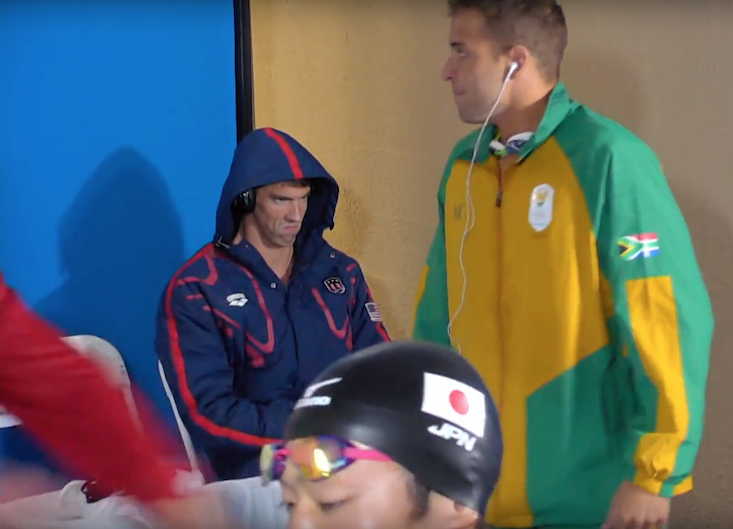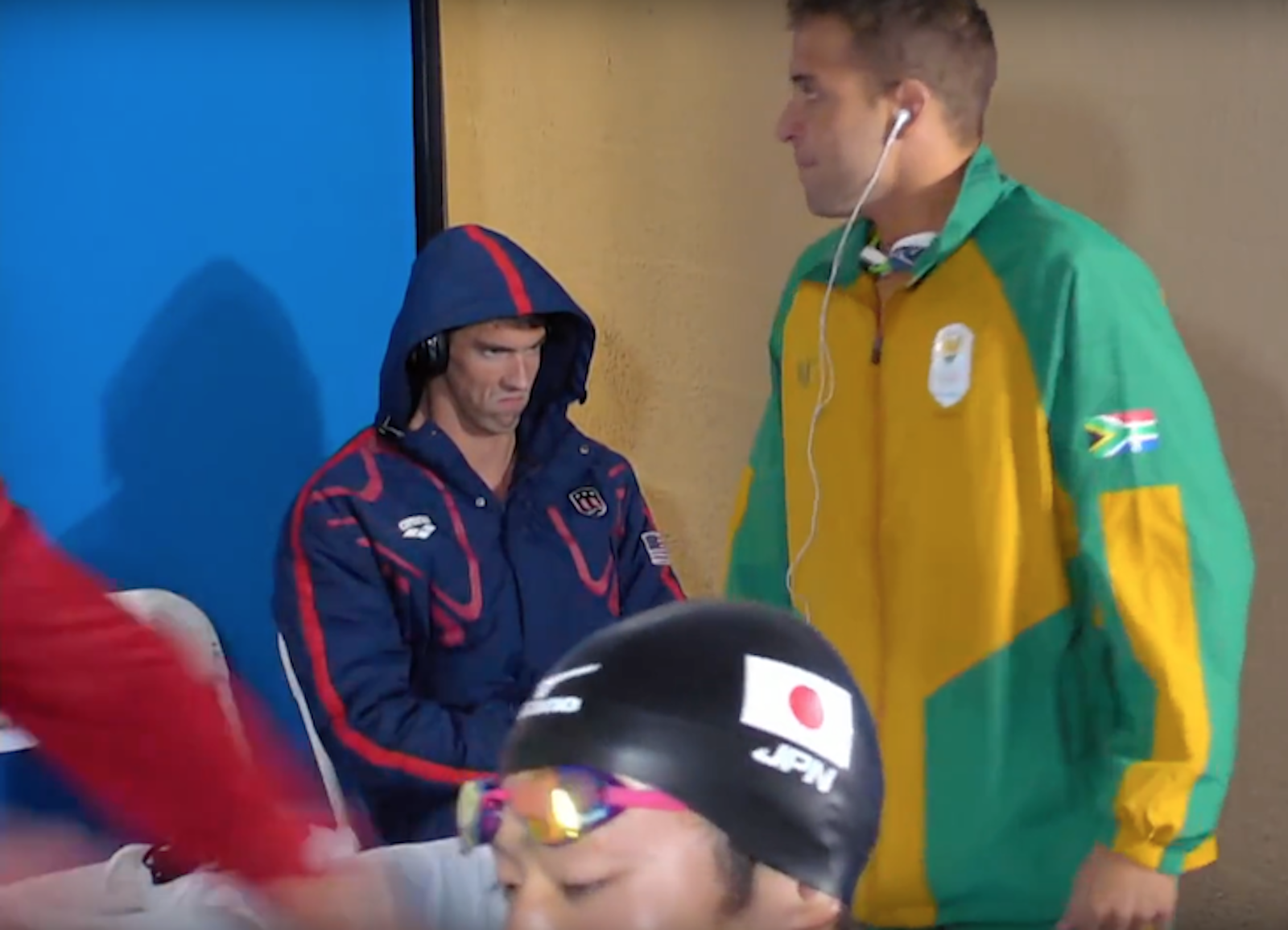On the second day of the Rio Olympics, American swimmer Michael Phelps won his 19th gold medal (he would go on to win four more), becoming the world’s most decorated Olympic athlete. The next day, Phelps revealed that he also has what may be the world’s best game face. While waiting for a semifinal race, with rival Chad le Clos shimmying and tossing out karate moves in front of him, Phelps sat slouched in a folding chair, wearing headphones and a hood down over his face. Looking strikingly like Emperor Palpatine in Star Wars, Phelps scowled like someone trying to lift a double-decker bus with his mind, his jaw twitching. If you’ve somehow missed it, you should probably just watch it for yourself.

Getting into the right headspace is important, says Bradley Hatfield, a former athlete and coach, now a cognitive neuroscientist at the University of Maryland. In fact, an ability to separate out the background noise and focus only on the task at hand is part of what separates the great athletes from the merely middling ones, he says. Some people are born with it, but according to Hatfield’s research, it’s also something that can be cultivated.
Is the ability to quiet mental noise what makes a great athlete?
I always admired Chris Evert [the American tennis star]. She seemed like a machine to me—whether she was ahead, behind, whatever, didn’t matter. It turns out that she was also a very high-stress performer, but apparently managed it very well. That’s what makes a great athlete. If you look at a high-level athlete, they are a tremendous study in concentration and focus. Their ability to coordinate their movements under intense pressure, it’s almost like a performing a fine art. It’s the rare person who could perform under such high levels of concentration.
What does the brain of a top athlete look like during competition?
Basically what you have is a disengagement of any nonessential neural processes—those could be labeled as “noise”—and an engagement of the neural networks relevant to the demands of the task. You have a locking on of relevant neural processes, a very specific attentionally engaged mental state. What it would look like in the brain is an overall quieting of cortical activity. There are not a lot of conversations going on in the brain when a person has a high level of skill. It’s not just a matter of a quiet, sleepy brain, but a brain that is precisely and remarkably matched in its engagement with its task demands.
Can athletes learn to get into “the zone” more readily, or do they have to be born with it?
My colleague and I recently studied the brains of professional football players using a magnetic resonance imaging machine. Compared to healthy-but-untrained young men, the brains of the football players tended to have much narrower responses to emotional situations.
We brought them into a neuro-imaging laboratory, and showed them a set of images. Some of the images were standard pictures for psychological tests, but some were sports-specific images—seeing a hyperextended knee, seeing someone’s foot with the toes facing backwards, somebody being hit with the helmet, a coach screaming at a player. Compared to the healthy-but-untrained young men we used as controls, the athletes showed a very adaptive response. They tended to have much narrower response to emotional situations, to manage emotion, to see things more positively. When it came to the general scenes, the athletes were still less perturbed than the controls, but they didn’t engage the networks like they did in sports scenes. This suggests that the emotional control is at least partially learned.
What about non-athletes—can we learn anything from your work on getting into “the zone”?
I think that there’s a great lesson that goes beyond sports. I see this in my graduate students sometimes, as they’re going into a dissertation defense—I can see their thinking isn’t quite clear. On the inside I think, “Oh shit you’ve got it mixed up.” I could sit them down and correct them, but I say, “Nope, go with what you know. Go with what comes naturally.” It’s the same with giving a speech, for someone interviewing for a job, for a surgeon about to go into surgery—you’re going to have to go with whatever that surgeon already knows. You’re not going to get him to learn new skills in the ER. So keep it simple. Don’t think ahead too much. Go with what you know. You’ve got to keep that brain quiet.
How did you get interested in how athletes direct their attention?
I got interested in the psychology of sports because I was very nervous as an athlete. I grew up in Canada, and hockey was the big thing. I also ran track and field and played football. I had tremendous ability in terms of speed and physical strength, but I would get uptight. I was a high-stress performer. I was fascinated by people who were so confident. It made me very interested in psychology of the high performer.
Zach St. George is a freelance reporter based in California, writing about science and the environment. Follow him on Twitter @ZachStGeorge.






























